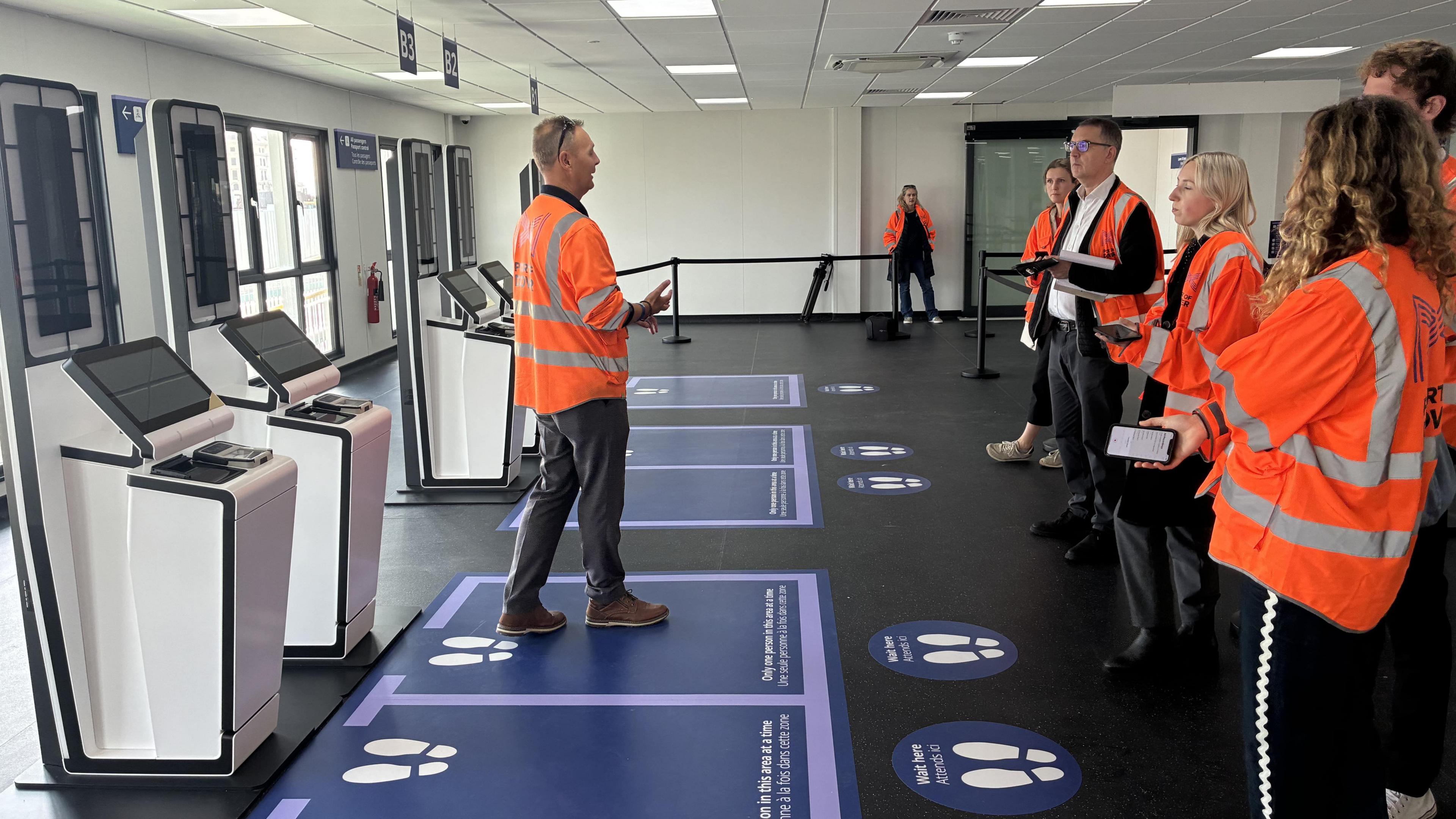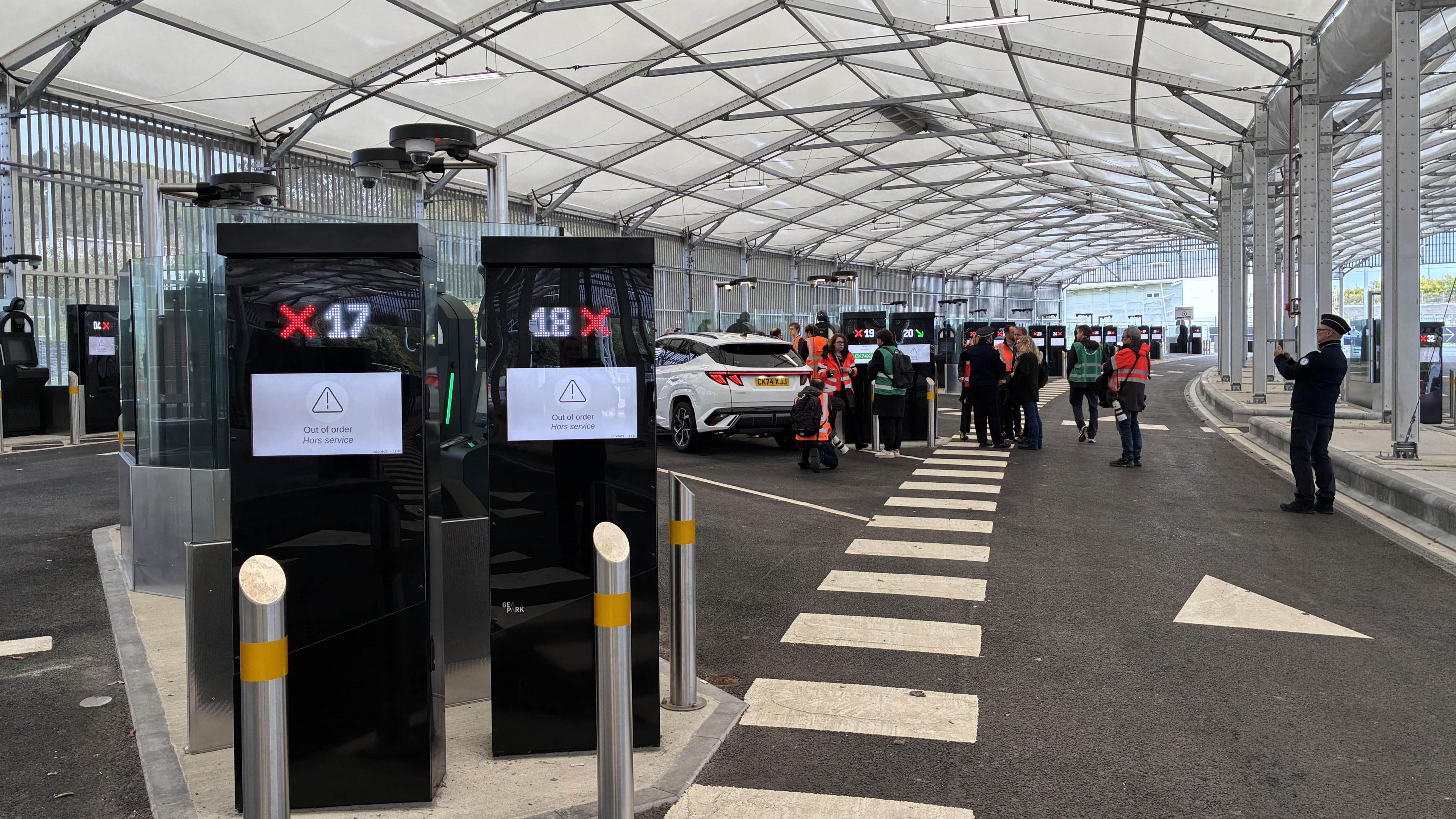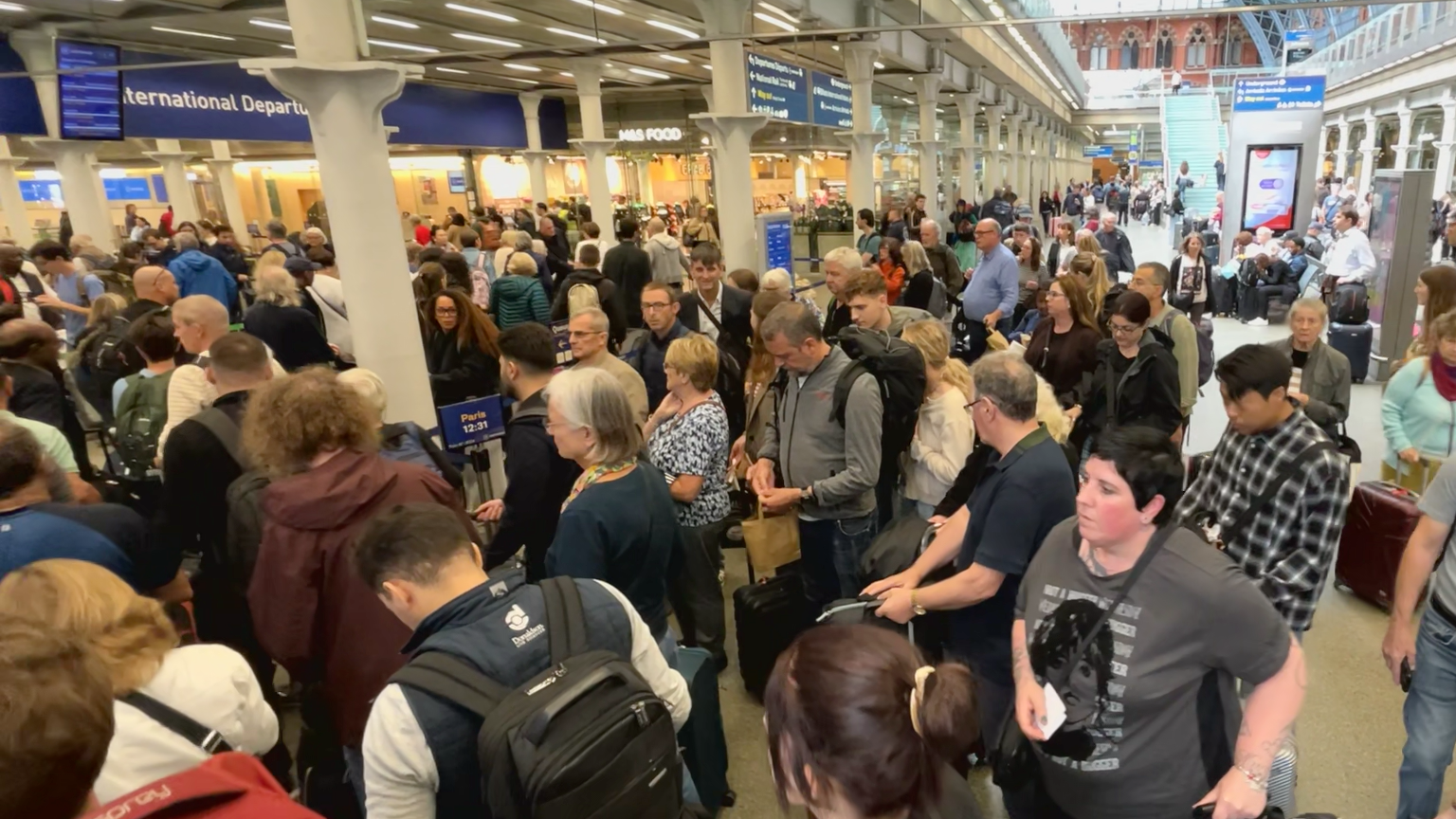Port of Dover EU checks may take six times longer

New border checks are being phased in at Dover
- Published
The Port of Dover says it may take six times longer for cars to go through the new EU border checks which are being phased in.
The much-delayed Entry/Exit System (EES) will see British passengers having their photo and fingerprints taken to enter the bloc in an effort to improve security.
Managers at the port have insisted there will not be delays due to the system, which is being phased in from Sunday, as traffic levels will be "manageable".
A government spokesperson said: "We are supporting ports and carriers to ensure EES registration is simple for anyone travelling to the Schengen area."
For the first few weeks, only lorry drivers and coach passengers will have to register at Dover.
At present, the port says it takes about 60 seconds to process each car at the border.
But with the introduction of the EES, people from most non-EU countries will have to get out of their vehicles and register at electronic kiosks.
The port says it will take about six minutes per car, depending on the number of people in it.
Doug Bannister, the port's chief executive officer, said "facilities are all in place" and there "won't be any delays".
He added: "We've designed this all with the intention that we won't have any queuing on the external road network close to the port."
There is still lots of building work taking place to accommodate the new checks, but bosses say the area for coach passengers is complete.
The area for cars will be ready from the start of November and there will eventually be a total of 84 kiosks.

Doug Bannister, Port of Dover CEO, says there will not be delays
Checks for ferry passengers from Dover, as well as people travelling via the Eurotunnel and Eurostar, take place on British soil, but people flying into the EU will be registered on landing.
The checks will be introduced over a six-month period, with ports and airports able to request that they are suspended if technology goes down or if queues start to build.
Linden Kemkaran, leader of Kent County Council, said: "Anything can tip our roads from being well-functioning to a bit chaotic.
"We are flexible and we will adapt to whatever is thrown at us."
Eurotunnel, which runs vehicle shuttles through the Channel Tunnel, is also expecting to introduce the EES in stages from 12 October.
At Eurostar terminals, the EES will be introduced more gradually.
Only a small number of business travellers will be invited to use the new system from 12 October, with more passengers set to use it over subsequent months.
The EES should be active at every Schengen border crossing point in all 29 participating countries by 10 April 2026.
Follow BBC Kent on Facebook, external, on X, external, and on Instagram, external. Send your story ideas to southeasttoday@bbc.co.uk, external or WhatsApp us on 08081 002250.
Related topics
- Published23 September

- Published16 October
